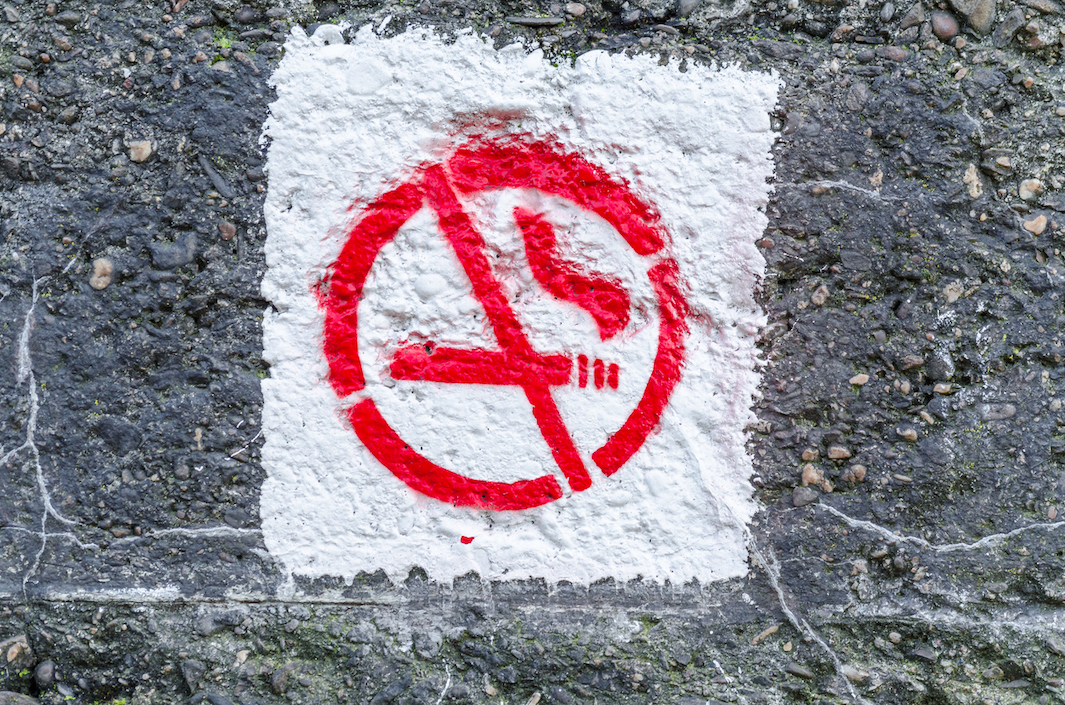As a dyed in the wool Conservative I believe in freedom of choice, but smoking is not a matter of free choice.
The only free choice is whether to smoke that first cigarette. Two thirds of those trying just one cigarette, usually while they are still children, go on to become daily smokers, and daily smokers are addicted smokers. Most adult smokers want to stop smoking, but on average it takes 30 attempts to succeed, and only one in ten smokers a year successfully quit. Two out of three long-term smokers die prematurely, often after years of disability, from the cancers, respiratory and cardiovascular diseases caused by their smoking.
For me, this is deeply personal. Both of my parents died of cancer caused by smoking. My late mother was only 47 when she died of lung and throat cancer, as she was a very heavy smoker for most of her life.
I do not want to see families go through what my family had to go through during those terrible days. That is why I supported the ban on smoking in public places and why I support the government’s smokefree ambition, and the tough legislation needed if it is to be delivered. For make no mistake, without tough action, and soon, we will not drive smoking rates down to 5% or less by 2030, the smokefree ambition.


I know there will be those concerned that this is the “nanny state”, but I don’t agree and neither do the voters. More than three quarters of the public support government action to limit smoking with nearly two thirds of them thinking government should do more. Fewer than one in ten think government is doing too much. Two thirds support raising the age of sale from 18 to 21, with little opposition.
The majority of independent tobacco retailers also support raising the age of sale to 21, and in the US where it has been the law since 2019 it has been responsible for reductions of 30% in smoking among young adults. The New Zealand legislation which will raise the age of sale from 18 by one every year from 2027 onwards, is supported by half all adults in Britain.
So there is majority support even before the government has consulted the public on the issue. The lesson from the smoking ban in England is that public debate leads to growing support. In 2004 before the debate got going, half the public supported banning smoking in pubs and clubs.
After a consultation and 18 months public debate support rose to two thirds, then to seven out of ten just before the legislation came into force in 2007. After implementation support rose to eight out of ten, with little opposition, largely because of growing support from smokers. Compliance with the ban was 97% from the outset because there was widespread public support and it was self-enforcing.
Ending smoking is not just about health and wellbeing, it is a vital plank in the government’s strategy to deliver a workforce fit for the 21st century and grow the economy. Half the difference in healthy life expectancy between the most and least advantaged is due to smoking. Over half a million smokers are admitted to hospital each year for treatment for diseases caused by their smoking. Smokers need social care on average ten years earlier than non-smokers and the sickness and disability caused by smoking is a significant factor in the numbers unable to work. Stopping smoking has an immediate impact on the quality and length of life of individual smokers.
Tobacco apologists say that tobacco taxes bring in far more than the cost to the NHS. But NHS costs are a tiny part of the cost to the public finances and to the economy. In 2022 smoking cost the economy £22 Bn nearly double the £11 Bn tobacco brought in by taxes. The £2.2 Bn cost to the NHS and £1.3 Bn to social care were far outweighed by the £11.8 Bn lost income tax and national insurance for smokers unable to work; and £5 Bn in social security payments. Every percentage point decline in smoking brings people back into the workforce, benefiitting public finances by around £800 million.
Neither the Government nor the Opposition originally supported legislation to ban smoking in public places, it was called ‘an extreme solution’ by political advisers, something hard to imagine now.
However, following a campaign by all the leading health organisations, supported by the CMO, backbench MPs were convinced by the evidence and the wishes of their constituents, and legislation was passed by an overwhelming majority on a free vote. The ban on smoking in public places is now claimed as a legacy by all political parties and the tradition that this is not a party political issue is well established, with standardised packaging and the ban on smoking in cars carrying children both carried on free votes.
I urge the Prime Minister not just to consider raising the age of sale, but also all the other measures to make smoking obsolete set out in the APPG report and the Khan review. He can be assured that he will get strong cross party support for all the actions needed to deliver the Government’s smokefree 2030 ambition. What a legacy that would be for this government.
Politics.co.uk is the UK’s leading digital-only political website, providing comprehensive coverage of UK politics. Subscribe to our daily newsletter here.












